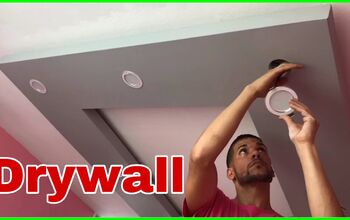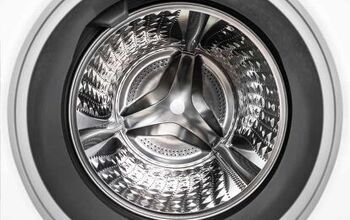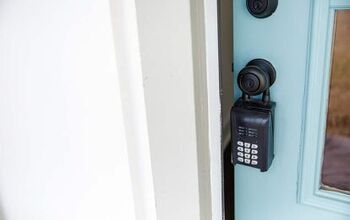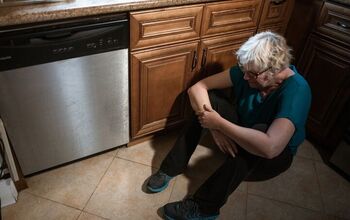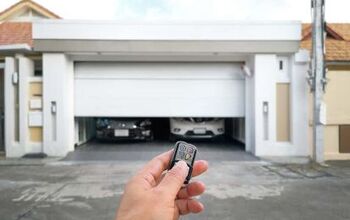Electric Fireplace Keeps Shutting Off? (Possible Causes & Fixes)

Ah, the warm glow of a fire. It’s something that people have a primal connection to. Our ancestors love it, and now we love it in the form of both electric and gas fireplaces. Electric fireplaces are great if you don’t have a typical hookup for a gas fireplace, but they tend to have a lot of problems. One of the most common problems is a fireplace that keeps shutting off by itself. Wondering what’s going on with your fireplace?
When an electric fireplace keeps shutting off it is likely being caused by one of two problems. Either the room has reached the thermostat’s set temperature and there is no need for the heat to stay on or your fireplace has overheated and is shutting itself off. An electric fireplace may overheat due to restricted airflow, a blocked heater, or a dirty heating element or air filter.
Having your heat go off can be pretty aggravating, but it’s not something that’s impossible to fix. Believe it or not, the issues you’re seeing are usually an easy fix.
Do You Need to Hire an Electrician?
Get free, zero-commitment quotes from pro contractors near you.

Before You Panic: Is Your Electric Fireplace Really The Problem?
Electric fireplaces are great, even though they have a bad rap. In many cases, your electric fireplace might not be the problem. Before you assume that it’s your fireplace that’s malfunctioning, do the following:
- Check to see if your circuit breaker tripped. Did other parts of your home suddenly shut off? If so, turn the breaker back on. If it happens repeatedly, it could be an electrical wiring issue that you need to get address.
- Make sure your pets didn’t pull the plug out of the socket. Anyone who’s ever owned a cat understands this vibe.
- Check your thermostat. If you are experiencing other problems with your heating system or cooling system, it probably is the thermostat. You can check to see if your thermostat went bad using this article here.
- Finally, if your fireplace is controlled by a switch, check to see if the switch got flipped. Kids and cats both can be annoying when it comes to this issue.
How Bad Of A Problem Is This?
It all depends, but there’s some good news for most fireplace owners. The vast majority of people who experience a fireplace that won’t stay on are able to fix it without having to spend a dime. Most fireplaces that suddenly shut off mid-cycle will also be able to have the problem prevented with minimal prevention, too.
With that said, there are issues that could cause this that are highly problematic. In many cases, this could mean a busted heat sensor or heating element.
Troubleshooting Your Electric Fireplace
Are you sure that your fireplace is the problem? Great, I guess. Well, now that you know what the problem is, it’s troubleshooting time. Here’s how to figure things out.
The Thermostat
The first thing you want to do is get a temperature reading near the thermostat. If the temperature in your room is the same as the thermostat, then there’s a good chance that your fireplace was doing what it’s meant to do. Should this be the case, you don’t have to worry since it’ll turn back on when you need heat.
On the other hand, if the thermostat is showing a higher temperature, it’s time to check other issues that could be afoot. Put your hand close to the fireplace. If it seems overly warm, go to the next part of the troubleshoot. Otherwise, it may be an issue with the heat sensor in your fireplace or thermostat. This usually requires part replacement.
Check For Overheating
The other main reason why you might have an electric fireplace that keeps shutting off is its overheating protection function. If a fireplace has an overheating element, the system shuts down as a way to keep things safe. Overheating can be caused by a number of fairly simple things that you can fix in a pinch. Here’s how to troubleshoot it:
- If you recently installed the fireplace, check to see the location of the fireplace. Overheating is more likely to happen in corners. If you placed the fireplace near a heating vent or an area that could trap heat, then you should move it. If your fireplace has been there for a while without issue, skip this step.
- Turn off the fireplace and unplug it. Before you can clean out your dust, you need to let it cool down. Otherwise, you’re going to burn your hands!
- After it’s cooled, open up the back of the fireplace and clear out any dust that could be there. Dust is the number one cause of overheating in electric fireplaces, and even the most meticulously cleaned places will have some buildup. Use a vacuum behind the fireplace and manually clear out any dust bunnies around your fireplace. After cleaning up, check to see if things have improved. Chances are, they will.
- Then, refer to your owner’s manual to find out how you can clean out the interior of your fireplace. More specifically, you will need to find out how to clean the heating element. This is usually the final issue that people have with overheating.
- Finally, if your electric fireplace has an air filter, change it. Much like how a dirty air filter can make your HVAC suddenly shut down, a dirty air filter will also cause your fireplace to shut down. Pull it out, check it over, and determine if it needs changing. If you aren’t sure, give it a change just to see if it helps. This usually will help everything run smoother, anyway.
Restricted Airflow
A restricted airflow is one of the most common causes of overheating in an electric fireplace. These types of fireplaces require adequate airflow in order to function properly. A blocked, or even a partially blocked fireplace inlet will prevent the heating element from being able to cool. This results in it becoming too hot to operate safely.
Locate the inlet to your electric fireplace and inspect for anything that may be blocking it – whether it’s carpeting, paper, or dust. When you’re choosing the location for your fireplace, be sure to put it somewhere where the airflow will not be restricted. This means ensuring that the inlet is kept away from furniture, walls, curtains, and other items that can cause an accidental blockage.
Blocked Heater
Just like how the airflow to your electric fireplace can be restricted, the outflow of hot air can be restricted as well. This also causes the fireplace to overheat and turn off. Inspect the area where your electric fireplace releases heat to ensure that nothing is blocking it. For best results, your fireplace should be positioned at least three feet away from anything in your home that could limit the heat from escaping.
Incorrect Bulbs
Another common cause of an electric fireplace shutting off unexpectedly is when the bulbs are too high of a wattage for your particular model. Though, this is more likely to be the cause when you recently swapped the bulbs out. Refer to your fireplace’s owner’s manual to ensure that you are using the recommended bulbs.
What Else Could Be Causing an Electric Fireplace to Shut Off?
If you could sense heat coming off the fireplace, it could be that you have a broken heating element or a broken heat sensor. These both require you to replace the parts mentioned. You can find out how to do this by referring to your owner’s manual, but it’s often better to hire a pro.
Additionally, electric fireplaces draw very high amounts of current and the internal circuit breaker could trip if the unit is drawing too much. To avoid this problem, never plug your electric fireplace into an extension cord. Always plug it directly into a wall socket.
When Should You Call A Repairman?
For the most part, the only reason why you might have this issue happen deals with overheating. Most of the time, clearing out the dirt is enough. However, sometimes, you will still end up with issues that could require a part replacement. If you have reason to believe that your fireplace’s heat sensor or electrical wiring is faulty, then you should call a repairman.
Moreover, if your fireplace has any signs of heating element problems (such as burn marks), you might want to call a repairman just to inspect everything. While it is possible to replace and diagnose these parts in some situations, this is not something you want to do on your own. A single bad wire can be enough to cause a serious house fire.
On a similar note, if you suspect that your fireplace had a serious electrical overload, call a repairman immediately. This could be a fire hazard!
Bad Signs To Watch For
Wondering whether you should stop using your fireplace? These warning signs suggest that it should stay off until a professional diagnostic has been made:
- You smell something along the lines of burning plastic. This suggests that you had a wire that was so overloaded, it burnt out. Not a good look, and a definite fire hazard!
- There was a puff of smoke coming out of the fireplace. That’s a big ol’ fire hazard waiting to occur. Actually, if this happened, you probably should unplug the fireplace and try to get it out of the house if it’s possible. Fires can reignite up to eight hours after they burn out.
- You notice that the heating element looks burned. Do you notice burn marks around the heating element? That’s not supposed to happen. It suggests that your fireplace was so hot, it almost caught fire.
- The heat sensor or heating element looks cracked or otherwise appears to be broken. If you can confidently replace it, then do so on your own. Most owners’ manuals have a guide on this. If you don’t feel like you can do it on your own, call a repairman immediately.
Do You Need to Hire an Electrician?
Get free, zero-commitment quotes from pro contractors near you.

Related Questions
Do electric fireplaces need ventilation?
Unlike gas fireplaces or wood-burning fireplaces, electric fireplaces do not make emissions when they produce heat. They’re efficient like that. This means that you will not need to add any kind of ventilation to a room with an electric fireplace. If you want to have a fireplace but don’t have a well-ventilated area, an electric model is your best bet.
Do electric fireplaces need gas lines?
While electric fireplaces do give off a fair amount of heat, they do not need a gas line to do it. This is why they are most popular in homes that are not pre-fitted with a gas line.
How long do electric fireplaces last?
Though they often are derided as being cheaply made, electric fireplaces are anything but. A typical electric fireplace will be able to remain in working order for anywhere from 10 to 20 years before needing to be replaced. In some cases, it’s even possible to see a fireplace last for as much as 25 years or more.

Ossiana Tepfenhart is an expert writer, focusing on interior design and general home tips. Writing is her life, and it's what she does best. Her interests include art and real estate investments.
More by Ossiana Tepfenhart










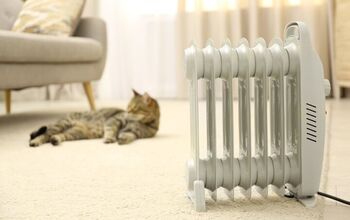
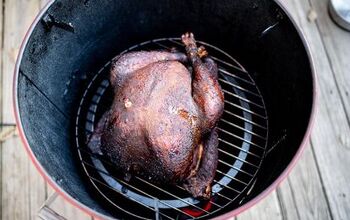

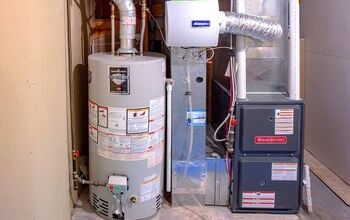
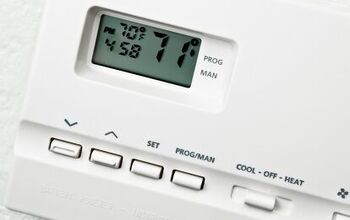
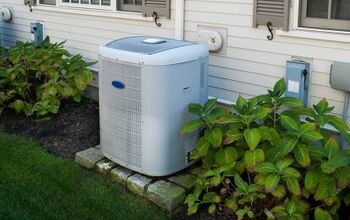
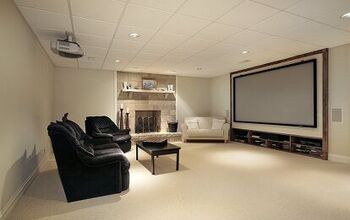
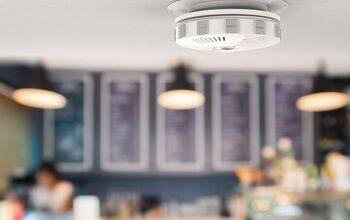

![How To Reset A Whirlpool Cabrio Washer [In 5 Easy Steps!]](https://cdn-fastly.upgradedhome.com/media/2023/07/31/9076531/how-to-reset-a-whirlpool-cabrio-washer-in-5-easy-steps.jpg?size=350x220)
